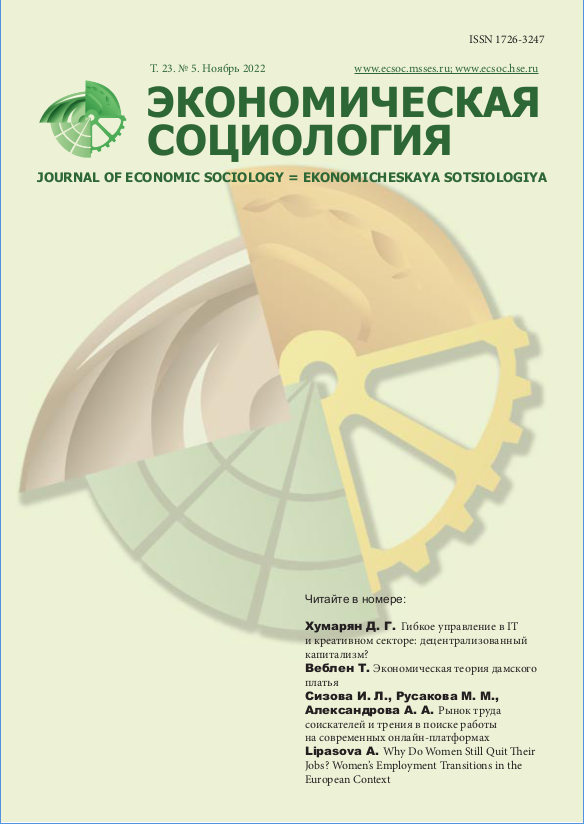The Job Seekers Market and the Frictions of Finding Jobs on Online Platforms
Abstract
The article examines the state of the labor market of job seekers and frictions that prevent effective search behavior on modern online platforms. Matching is increasingly beginning to depend on the specifics of human capital and modern digital technologies. In general, job search on the Internet includes both a traditional set of problems (segmentation and marginalization of the labor force) and produces new ones, which, first of all, include information and communication interference and distractions, united in the literature by the term search frictions. In the theoretical part of the article, based on a review of existing literature, the problems that complicate the job search are analyzed. Unresolved problems contribute to the formation of a “spot” labor market, which accelerates the inflation of education, wages and the struggle for talent. At the same time, the (online) labor market is growing. While not in crisis, its condition can be characterized as “sluggish”, which means that a long job search and selection of personnel are coupled with a large number of fictitious and unsuitable offers from both sides. The second part of the article contains the results of the author's sociological study of the features of the functioning of the Russian online labor market for job seekers (by the method of statistical research of a structured array of cv data provided by the state service “Jobs in Russia”). The analysis showed that relying solely on the significant scale of the online job search site does not guarantee citizens assistance in finding a job. The low quality of the platform, the pronounced regionalization of the market, the existence of discriminatory practices (gender-based job search strategies, high wage dispersion), and the lack of a job search culture, on the one hand, are consistent with the labor market development tendencies in Western countries. On the other hand, a lot of friction narrows the chances of successful employment for job seekers and leads to a general stagnation of the market. The studied state platform, despite the presence of young and highly educated candidates, fully meets all the signs of a “sluggish” and weak labor market, in which “imperfect” categories of candidates dominate with a focus on “simple” signals to the employer, and as a result, on a non-optimal job search result.













